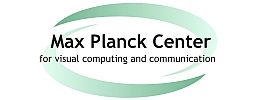| Foto | First Name | Last Name | Position |
|---|---|---|---|
 |
Mike | Sips | Visual Exploration of Space-Time Pattern in Multi-Dimensional and Heterogeneous Data Spaces |
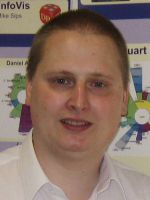 |
Mike | Sips | Visual Exploration of Space-Time Pattern in Multi-Dimensional and Heterogeneous Data Spaces |
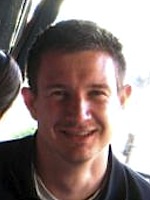 |
Michael | Stark | Visual Object Recognition and Scene Interpretation |
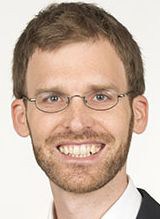 |
Jürgen | Steimle | Embodied Interaction |
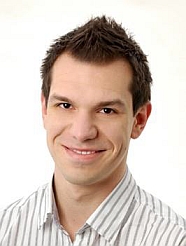 |
Markus | Steinberger | GPU Scheduling and Parallel Computing |
 |
Carsten | Stoll | Optical Performace Capture |
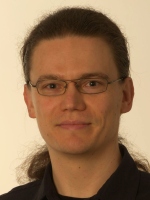 |
Robert | Strzodka | Integrative Scientific Computing |
 |
Robert | Strzodka | Integrative Scientific Computing |
 |
Holger | Theisel | Topological Methods for Vector Field Processing |
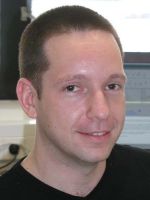 |
Holger | Theisel | Topological Methods for Vector Field Processing |
Researcher
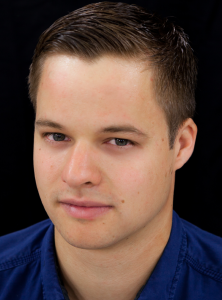 |
Dr. Michael Zollhöfer |
Visual Computing, Deep Learning and Optimization
| Name of Research Group: | Visual Computing, Deep Learning and Optimization |
| Homepage Research Group: | web.stanford.edu/~zollhoef |
| Personal Homepage: | zollhoefer.com |
| Mentor Saarbrücken: | Hans-Peter Seidel |
| Mentor Stanford: | Pat Hanrahan |
| Research Mission: | The primary focus of my research is to teach computers to reconstruct and analyze our world at frame rate based on visual input. The extracted knowledge is the foundation for a broad range of applications not only in visual effects, computer animation, autonomous driving and man-machine interaction, but is also essential in other related fields such as medicine and biomechanics. Especially, with the increasing popularity of virtual, augmented and mixed reality, there comes a rising demand for real-time low latency solutions to the underlying core problems. My research tackles these challenges based on novel mathematical models and algorithms that enable computers to first reconstruct and subsequently analyze our world. The main focus is on fast and robust algorithms that approach the underlying reconstruction and machine learning problems for static as well as dynamic scenes. To this end, I develop key technology to invert the image formation models of computer graphics based on data-parallel optimization and state-of-the-art deep learning techniques. The extraction of 3D and 4D information from visual data is highly challenging and under-constraint, since image formation convolves multiple physical dimensions into flat color measurements. 3D and 4D reconstruction at real-time rates poses additional challenges, since it involves the solution of unique challenges at the intersection of multiple important research fields, namely computer graphics, computer vision, machine learning, optimization, and high-performance computing. However, a solution to these problems provides strong cues for the extraction of higher-order semantic knowledge. It is incredibly important to solve the underlying core problems, since this will have high impact in multiple important research fields and provide key technological insights that have the potential to transform the visual computing industry. In summer 2019 Michael Zollhöfer joined Facebook. |
Researcher
- Name of Researcher
- Tino Weinkauf
- Homepage of Research Group
- Weinkauf
- First Name
- Tino
- Last Name
- Weinkauf
- Foto
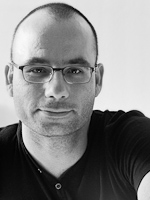
- Homepage
- www.csc.kth.se/~weinkauf/
- Phone
- Position
- Feature-Based Data Analysis for Computer Graphics and Visualization
- Mentor in Saarbruecken
- Hans-Peter Seidel
- Mentor in Stanford
- Categories
- Former Groups
- Research Mission
- Analyzing large and high-dimensional data sets is a challenging task and ideally carried out using sophisticated tools which allow to concentrate on the most relevant information and to automate the analysis. These goals can be achieved using feature-based methods, which foster target-oriented studies of the most important aspects of a data set. We develop algorithms and mathematical models to analyze data sets from a variety of different domains such as computer graphics, fluid dynamics, planetology, and cell biology. The basis of our work is discrete Morse theory, as it allows robust, parameter-free, and topologically consistent computations. Our goal is to develop solutions to the open problems of discrete Morse theory in order to make discrete approaches applicable for a large number of practical applications. Since 01 February 2015 Tino Weinkauf holds a Chair of Visualization in the School of Computer Science and Communication, KTH Stockholm.
- mission_rtf
- Name of Research Group
- Feature-Based Data Analysis for Computer Graphics and Visualization
Personal Info
- Photo

- Website, Blog or Social Media Link
